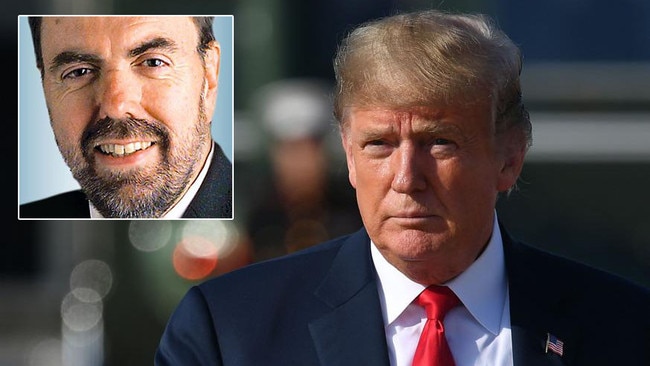
Donald Trump keeps outraging people by doing what he promised he would do.
Withdrawing 2000 US troops from Syria cannot be strategically decisive. But if Trump gave any clear message on foreign policy during his election campaign, it was that he would pull back from ground force-based US military commitments in the Middle East.
The fact Trump did this more or less against the wishes of his national security establishment can be seen either as legitimate presidential leadership or irresponsibility. Take your pick.
Certainly Trump announced the move with the usual chaotic lack of process.
And as usual he turned the political universe upside down. The CNN network, which excoriated George W. Bush for every single effort he ever made with US troops in the Middle East, was yesterday denouncing Trump for pulling US troops back.
All the CNN bloviaters morphed in a second into counter-insurgency hawks straight from the Heritage Foundation of 15 years ago.
Trump’s move has some serious risks. But first, it should be evaluated realistically.
Two thousand troops, even crack US troops, cannot have a strategic effect in a densely militarised, vast international combat zone such as Syria. They are essentially a symbolic force.
Their only effective military role is to act as a trip-wire for US engagement. If some power attacked the US troops directly it would likely trigger serious US retaliation. That is exactly the sort of half-pregnant, mini-military micro-commitment that characterises a power that doesn’t want to be there but can’t quite get out.
The other thing such a small force can do is a bit of training, but it is hard to look back at the past decade and a half of US efforts in Iraq, Syria and even Afghanistan and conclude that training is the answer.
Nor does pulling out ground troops necessarily mean that the US is ceasing to exercise any influence. Air campaigns, drones and, above all, financial and other help to favoured local forces are all ways of exerting strategic influence. In many contexts, these are more effective ways to deliver strategic effect than an expensive, beleaguered and necessarily limited and temporary ground force.
In any event, it is simply unreasonable to argue that US forces must stay in countries such as Syria forever.
Trump’s withdrawal is criticised by Republican hawks who seriously and sincerely favour engagement, and by liberal Democrats, who would criticise Trump whatever he did.
Nonetheless, there are dangers in Trump’s moves.
The US’s main, long-term allies in Syria and Iraq are the Kurds. They have generally been the best friends of the West in Iraq and Syria and they have often run the most decent and humane regimes within the territories they have controlled.
The Kurds are Muslims, but I have interviewed numerous Iraqi Christians who fled persecution by Islamic State and other Islamist extremists into Kurdish areas where they were not persecuted and in fact found safe haven.
The Turks have a long history of conflict with the Kurdish minority within their own territory. The Turkish government has recently talked alarmingly of conducting an offensive against the Kurds in Syria who have done some of the most effective fighting against Islamic State.
Trump seems to be pursuing a new closeness to Ankara. That is not necessarily a wholly bad idea. But Trump should not abandon the Kurds.
This is for two reasons. First, simple humanity and morality. That argument is never very powerful with Trump.
Second, US credibility and alliance credibility. The US not only helps allies, it needs allies. It will not be able to attract allies if it abandons or betrays them. That argument also typically plays badly with Trump, who still does not seem to understand the nature and benefits of alliances.
Trump’s justification for leaving Syria — that Islamic State is beaten — may be overstated. But probably there will always be some sort of Sunni insurgency in Syria and Iraq.
The US cannot stay everywhere forever. Sometimes a move can be prudent, even if it’s undertaken by Donald Trump.





